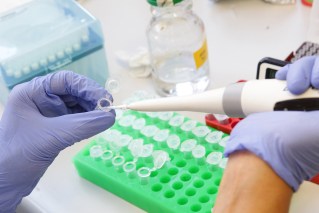Australian medical experts slam research linking ADHD to paracetamol


A study published out of the US that links paracetamol use and ADHD needs a lot more research, experts say. Photo: Getty
A US report that links paracetamol use in pregnant women to ADHD and autism disorder in their children has been slammed by Australian medical experts.
The research came out of John Hopkins University, and claims that samples of umbilical cord blood strengthened previously voiced links between the two.
One expert says the research need a dose of common sense, and that it fails to do anything to alleviate the anxiety that surrounds pregnancy and becoming a new parent.
What the study says
Published in JAMA Psychology on Thursday (Australian time), the researchers say they’ve found “in utero exposure to acetaminophen” which means it’s more likely for a child to develop the aforementioned disorders. They did this by testing the blood inside the umbilical cord of about 1000 mother-children pairs.
Basically, they’re saying if a child is exposed to paracetamol (commonly sold as Panadol, Herron Paracetamol or Panamax in Australia) while in the womb, their chances of developing ADHD or autism disease increases by a “significant” amount.
The research team do say there are a few flaws with the findings: they only took one reading of the cord blood (so it could just be a reading from the woman popping a Panadol to ease labour pains), and there was no control group to measure the findings against.

The study also didn’t fully document the alcohol consumption during pregnancy. Photo: Getty
What the experts say
In a nutshell: mothers don’t need to fret about taking a paracetamol to deal with a headache while they’re pregnant.
Half a dozen doctors from across Australia were quick to point out holes in the findings, mainly that the study did not specify if the mothers had taken paracetamol as a measure against labour pains. There also was no detail on whether the mothers had taken the drug earlier in their pregnancy.
- Related story: Study firms up link between antacids, allergies
Obstetrician and gynaecologist Dr Joseph Sgroi said the study’s findings should be taken with “common sense”, while Dr Alex Polyakov, clinical director at Melbourne IVF said the study’s relevancy to the general population was highly questionable.
The University of Sydney’s Professor Elizabeth Elliott said more than two-thirds of the children tested had at least one developmental disability, which perhaps indicated there was something larger at play.
Only some of the children were subject to follow-up tests, and this tended to be those that were developing wider developmental delays.
“Nothing in this study indicates that an occasional intake of a couple of Panadol tablets while pregnant would have any effect on the risk of ADHD (or autism),” Dr Polyakov concluded.
“Like any medication, paracetamol is not risk free and should only be taken if necessary, especially in pregnancy. Based on this study’s findings it may be best to avoid paracetamol around the time of labour and delivery.”
All the experts who reviewed the study – as well as the researchers themselves – concluded more controlled tests were needed.








